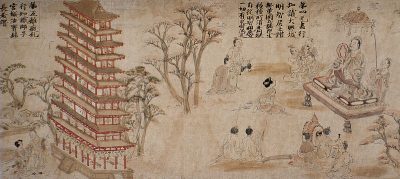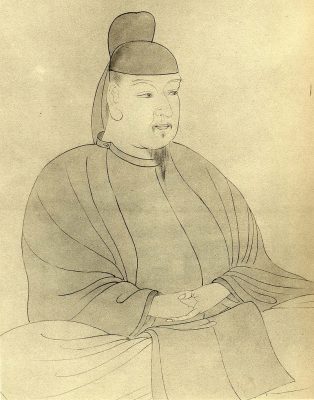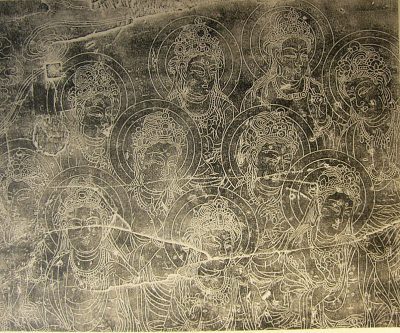Buddhism and poetry in Japan during the Nara Period
Lee Jay Walker
Modern Tokyo Times

Yamabe no Akahito belongs to the world of eighth-century Japan when Nara was the cradle of high culture in this nation. In truth, the jigsaw of his life is extremely difficult to piece together. Hence, his relationship with the devoutly Buddhist Emperor Shōmu is of major importance.
Indeed, much of the poems that endure the passages of time are related to Shōmu. This relates to Yamabe composing poems during the journeys of the Emperor. Therefore, one can imagine privilege, high culture, meeting people of influence, and visiting the holy places of Buddhism and Shintoism.
In a lovely poem by Yamabe, he gracefully writes:
When lily-seed dark
Night has fallen,
By the red-oak growing
Along the clear river’s edge
The plovers constantly call

By reading such words of simplicity – but full of grace – one can imagine the serene view that was bestowed on Yamabe during his travels. So images conjure the mind based on such lovely words and one can only imagine a blissful still night by the river.
In a past article, I comment, “His fifty surviving exquisite poems written between 724-736 enabled this poet to become one of the Thirty-six Poetry Immortals. These poems were written in the Manyoshu – an ancient anthology – that contains his sublime work. Of the fifty poems, thirteen are choka (long poems) and the other thirty-seven are tanka (short poems).”
The poem below, says more about the values of the time and how faith and nature naturally overlapped. Immediately, you can feel the past of Shintoism and the current trends of the impact of Buddhism. Therefore, the poem titled All-Knowing speaks more to the historical soul and sheds light on the mysterious properties of nature influenced by Shintoism.

All-knowing,
My great lord:
From the eternal palace,
Wherein we serve,
On the field of Sahiga,
Looking back
At the isles far offshore:
Where on the fresh, clean shoreline
With the blowing of the wind,
Breakers roar
And with the ebbing of the tide,
They go cutting jewelled seaweed:
From the age of gods
An awesome,
Jewelled mountain isle.
Turning to Emperor Shōmu, his legacy is multiple in relation to Nara and encompassing the whole of Japan. This notably relates to the provincial temples system that entrenched Buddhism to a much greater degree. Shōmu also commissioned the spring and autumnal equinox to be observed under the ohigan holiday. Also, after abdicating, Shōmu became a holy Buddhist priest – the first emperor to retire and take up Buddhist robes. Interestingly, Shōmu is venerated in Nara at a memorial belonging to the Shinto faith. Therefore, the fusions of Buddhism and Shintoism in life followed equally in death.
https://www.poemhunter.com/poem/lily-seed/ Lily-Seed by Yamabe no Akahito
https://www.poemhunter.com/poem/all-knowing-the-eternal-palace/ All-Knowing by Yamabe no Akahito

PLEASE DONATE TO SUPPORT MODERN TOKYO TIMES
PLEASE DONATE TO HELP MODERN TOKYO TIMES
Modern Tokyo News is part of the Modern Tokyo Times group
DONATIONS to SUPPORT MODERN TOKYO TIMES – please pay PayPal and DONATE to sawakoart@gmail.com
http://moderntokyotimes.com Modern Tokyo Times – International News and Japan News
http://sawakoart.com – Sawako Utsumi personal website and Modern Tokyo Times artist
https://moderntokyonews.com Modern Tokyo News – Tokyo News and International News
PLEASE JOIN ON TWITTER
https://twitter.com/MTT_News Modern Tokyo Times
PLEASE JOIN ON FACEBOOK
https://www.facebook.com/moderntokyotimes
Some cultural articles by Modern Tokyo Times are republished based on the need to inform new readers about the rich legacy of Japanese culture.